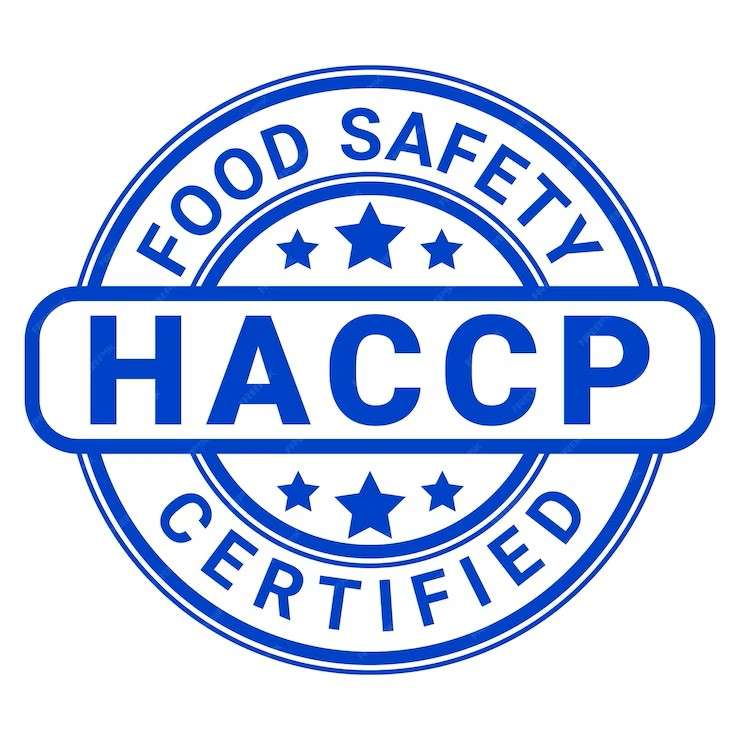I. Introduction
In the dynamic landscape of the food industry, prioritizing product safety is non-negotiable. Enter Hazard Analysis and Critical Control Points (HACCP) certification – a game-changer ensuring robust safety protocols from production to consumption.
A. Brief Overview of HACCP Certification
HACCP certification, an acronym for Hazard Analysis and Critical Control Points, stands as a preventive fortress against food safety risks. This globally recognized certification instills confidence, underlining a commitment to delivering safe and high-quality food products.
B. Importance of Food Safety in the Industry
Beyond mere compliance, this certification is a proactive shield, mitigating risks and ensuring stringent safety standards. This commitment not only safeguards public health but also builds trust and credibility, a key to long-term success in the competitive market.
II. What is HACCP Certification?
A. Definition and Meaning
HACCP, a systematic approach, identifies, evaluates, and controls potential hazards throughout the entire food production chain. It’s a commitment to proactive prevention, focusing on every step from raw material to consumption.
B. Key Principles of HACCP
- Conduct Hazard Analysis: Identify potential hazards.
- Determine Critical Control Points (CCPs): Identify points for effective hazard control.
- Establish Critical Limits: Set maximum and minimum values to control hazards.
- Monitor CCPs: Continuous real-time monitoring for immediate corrective action.
- Establish Corrective Actions: Plans to address deviations and prevent unsafe products.
- Verification: Regular reviews, audits, and reassessments for ongoing compliance.
- Documentation and Record-Keeping: Thorough documentation crucial for transparency and accountability.
III. The Process of Obtaining HACCP Certification
A. Initial Assessment and Preparation
The journey starts with a thorough assessment, forming a dedicated HACCP team. This multidisciplinary team conducts a hazard analysis, identifies critical control points, and lays the groundwork for the HACCP plan.
B. Implementation of HACCP Principles
Integrate critical control points into daily operations, including setting limits, monitoring procedures, and establishing corrective actions. Clear communication and training ensure all employees understand their roles in maintaining food safety.
C. Documentation and Record-Keeping
Robust documentation, including hazard analysis, critical control points, and verification activities, is crucial for transparency and compliance. Accurate record-keeping serves as evidence during third-party audits.
D. Third-Party Audit and Certification Process
Independent certification bodies conduct thorough examinations, reviewing documentation, conducting on-site inspections, and interviewing key personnel. Regular audits ensure ongoing compliance and continuous improvement.
IV. Benefits of HACCP Certification
A. Ensuring Food Safety
HACCP certification significantly reduces the risk of producing unsafe products, safeguarding consumer health and brand reputation.
B. Regulatory Compliance
Widely accepted globally, HACCP certification demonstrates proactive commitment, streamlining regulatory approval processes.
C. Enhancing Consumer Trust
The certification serves as a tangible assurance of dedication to producing safe and high-quality food, fostering consumer confidence and loyalty.
D. Opening New Business Opportunities
HACCP certification unlocks new opportunities, providing a competitive edge in markets and facilitating international trade.
V. Case Studies: Successful Implementations of HACCP Certification
A. Enhancing Consumer Trust in Retail
FreshMart Supermarket Chain’s HACCP certification enhanced consumer trust and attracted new customers.
B. Opening New Business Opportunities in International Trade
Global Food Exporter tapped into international markets, meeting stringent food safety requirements and establishing reliability.
VI. Industries and Sectors that Benefit from HACCP Certification
A. Food Manufacturing
HACCP certification ensures product safety, building consumer and regulatory trust.
B. Restaurants and Catering Services
Certification is a badge of commitment to food safety, assuring customers of a safe dining experience.
C. Retail and Distribution
It assures consumers about the safety of products, providing a competitive edge.
D. Importance in Global Supply Chains
Certification facilitates collaboration in global supply chains, ensuring consistent safety standards.
VII. Challenges in Obtaining and Maintaining HACCP Certification
A. Initial Implementation Hurdles
Organizations may face challenges in understanding and applying HACCP principles to their unique processes, necessitating thorough training and awareness programs.
B. Ongoing Commitment to Compliance
Maintaining HACCP certification requires continuous monitoring, updating, and employee training to ensure ongoing compliance and continuous improvement.
C. Addressing Evolving Food Safety Risks
Organizations must stay proactive in addressing emerging food safety risks, incorporating lessons learned and adjusting control measures accordingly.
VIII. Tips for a Successful HACCP Certification Journey
A. Training and Education
Thorough training on HACCP principles and procedures for all personnel fosters a culture of awareness and responsibility.
B. Continuous Improvement and Adaptation
Establish a culture of constant vigilance, regularly reviewing and reassessing HACCP plans to ensure ongoing relevance and effectiveness.
C. Engaging Employees in the Process
Active involvement and commitment of every employee are crucial, fostering a positive and motivated workforce dedicated to food safety.
IX. Future Trends in HACCP Certification
A. Technological Advancements in Food Safety
Integration of technologies like blockchain, IoT, and AI will revolutionize monitoring and ensuring food safety.
B. Evolving Regulations and Standards
Future trends will be influenced by evolving regulations, emphasizing preventive measures, risk assessment, and documentation.
C. Global Perspectives on HACCP
Different regions may emphasize unique aspects of HACCP, shaping its implementation and impact globally.
X. Embracing Global Recognition of HACCP Certification
As this certification gains global recognition, its acceptance and standardization across diverse regions and industries become increasingly evident. The versatile nature of HACCP principles extends benefits across various sectors where food safety is paramount.
A. Diverse Applications in Industries
- Food Manufacturing: It is a cornerstone for ensuring safety and quality, instilling confidence in consumers, stakeholders, and regulatory bodies.
- Restaurants and Catering Services: A badge of commitment to food safety, HACCP principles provide a competitive edge, assuring customers of a safe dining experience.
- Retail and Distribution: Certification plays a crucial role in assuring consumers about product safety, differentiating retailers in a crowded market.
- Global Supply Chains: Particularly significant in international trade, this certification acts as a common language for quality management, facilitating collaboration between suppliers, manufacturers, and distributors.
B. The Role of HACCP in a Changing Landscape
- Technological Integration: HACCP’s future lies in embracing technological advancements. Blockchain, IoT, and AI will enhance monitoring and ensure a more resilient food safety framework.
- Regulatory Dynamics: Evolving regulations will shape the future trends of HACCP certification, emphasizing preventive measures, risk assessment, and meticulous documentation.
- Global Perspectives: Acknowledging diverse perspectives globally will enhance the effectiveness and acceptance of HACCP certification on the international stage. Collaboration, industry forums, and case studies become crucial in this context.
XI. Conclusion
In conclusion, HACCP certification is more than a regulatory requirement; it’s a commitment to excellence and a safeguard for both businesses and consumers. Embrace the transformative power of HACCP, prioritize food safety, and embark on a journey towards a safer, higher-quality future for your business and the global food industry.










